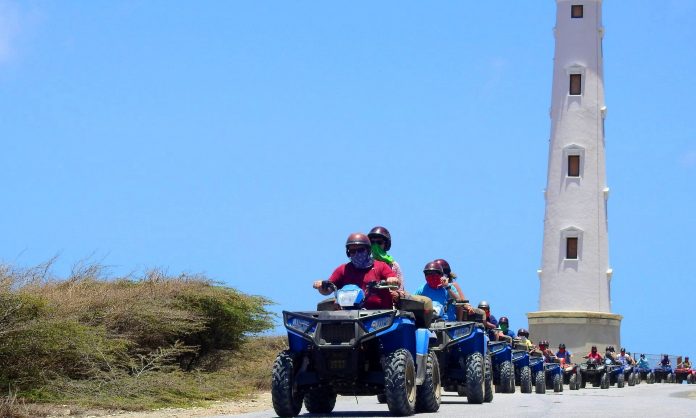Article by Etnia Nativa call us 592 2702 and book your experience!
Destination values, native heritage, and cultural identity are what Etnia Nativa advocates for as its own particular way of safeguarding all reasons to love Aruba. Through Island-Insight,” we share awareness, educate, and safeguard native heritage, and we encourage you to experiment with an island-keeper state of mind during your stay.During this episode, we want to share with you a growing concern that is affecting permanent residents of our still paradisiacal “…beloved rock’ (see episode 153)
We all know that tourism brings both benefits and costs for local residents and that the sociodemographic and economic characteristics of the local population influence—positively or negatively—the attitude of the host toward the guest.
We at Etnia Nativa, as an entity dedicated to the conservation of the island’s heritage, see the constant increase in the number of visitors as going out of hand, and we emphasize that Aruba cannot and should not be subjected to more pressure than it can handle since every coin has two sides.
The daily concerns of our permanent residents as well as the complaints of our repeat guests show us that “tourismophobia” is gaining strength, a phenomenon that has its “unfortunate root” in the deficient planning of different governments over the last 40 years, during which they have not taken into account the preferences or local attitudes as well as the size, carrying capacity, or how to handle all the garbage and waste water the touristic industry produces.
We are not “anti-tourism”, but today our tiny island is advancing through the “fourth step” proclaimed by George V. Doxey: by being a perfect study case example of “the antagonism, with tourism as the cause of the problem”. George V. Doxey was a socio-economist who, in 1975, described how legislators and planners need a monitor to gauge feelings of irritation among residents.
The so-called Doxey Irritation Index, or “Irridex”, is a concept that suggests that as the number of visitors to a certain destination increases, residents go through a sequence of emotions and reactions. Doxey identified four main stages in the interrelationship between the host community and the guest, noting that the first is the “euphoria” with which visitors are received, which we refer to in our episode 120 as “In the beginning.” The second stage is the apathy represented by the indifference towards the visitors when their presence is no longer a novelty but something common, and a nuisance arrives that begins to grow among the locals to the point of seeing tourists as invaders, culminating in “antagonism”.
Actually, according to Irridex,” Aruba as a tourist destination is immersed in the last two stages of antagonism and surrender, which are part of the current phenomenon of tourism phobia,” resulting in a rejection of the effects of excessive tourism. Aruba is stretching its carrying capacity with overflow and negatively compromising its environmental resources and native species, as well as generating discomfort and rejection among residents due to the arrival of visitors.
From the aforementioned “touristification” that is currently manifesting on our island, we can deduce that it “displaces” the local resident and shapes a lifestyle that only tourists can afford. This impacts the commercial and social core of specific places, such as the Noord area and coastal area of Savaneta, where “middle class” urban residential spaces become Airbnb facilities, stressing our residents with loud parties at night, flooded septic tanks, overflowing garbage bins, or dust blowing zooming caravans of off-road vehicles, which easily could be part of a Mad Max movie, running with no consideration to our fragile ecosystem.As concerned residents, we advocate for conscious and responsible tourism.
If you’re intrigued by Aruba`s native lifestyle and its cultural heritage do something outside of the tourist grid. Become one of the exclusive visitors of Etnia Nativa, a private museum/home where you will be able to touch and be touched by authentic Aruba heritage, a spectacle of native art, archaic as well as archaeological artifacts, lithic tools, colonial furniture, and other items of the island’s bygone era.
Etnia Nativa is, since 1994, the home of Anthony, acclaimed newspapers columnist, artist craftsman, and island Piache, who guides and lectures you through his resplendent collection. Etnia Nativa is the only place that recreates and introduces you to an authentic glimpse into native cultural heritage. Something completely different for a change—a contemporary Native Aruba experience!
Appointment is required Whatsapp + 297 592 2702 or etnianativa03@gmail.com




















